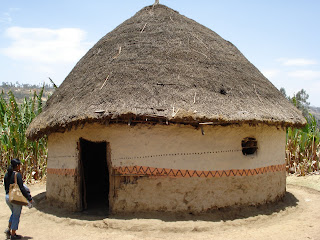We encountered homeless people and beggars, including many children of all ages, everywhere in the city. Within blocks of the opulent imperial palace compound (built during Haile Selassie's reign from the 1920's-1974), uniformed street patrol officers used large canes to wave beggars away from the shops and the tourists, occasionally striking them. A sad reality of a proud country in the midst of severe and chronic economic hardship.
Without question, our trip to Ethiopia was an amazing experience, both humbling and highly enlightening.







































